
Aziecro 200mg Oral Suspension
Manufacturer
Cronical Pharma Pvt Ltd
Salt Composition
Azithromycin (200mg/5ml)
Key Information
Short Description
Aziecro 200mg Oral Suspension is an antibiotic medication used to treat a wide range of bacterial infections in children.
Dosage Form
Oral Suspension
Introduction
Aziecro 200mg Oral Suspension is an antibiotic medication commonly given to children for the treatment of bacterial infections targeting the ear, eyes, nose, throat, lungs, skin, and gastrointestinal tract. It is essential to complete the entire course of this medicine to avoid the bacteria multiplying again or causing another infection.
Directions for Use
Give Aziecro 200mg Oral Suspension with food to avoid an upset stomach. Encourage your child to drink plenty of water in case diarrhea develops as a side effect.
How it works
Aziecro 200mg Oral Suspension is an antibiotic that works by interfering with the synthesis of essential proteins required by bacteria to perform important functions. It stops the infection-causing bacteria from growing further and prevents the infection from spreading.
Quick Tips
Complete the entire course of this medicine to avoid the bacteria multiplying again or causing another infection Give Aziecro 200mg Oral Suspension with food to avoid an upset stomach Encourage your child to drink plenty of water in case diarrhea develops as a side effect Aziecro 200mg Oral Suspension will not be effective for viral infections Only give Aziecro 200mg Oral Suspension to your child for their current infection
Related Medicines

Azibact LR 200 Readymix Suspension
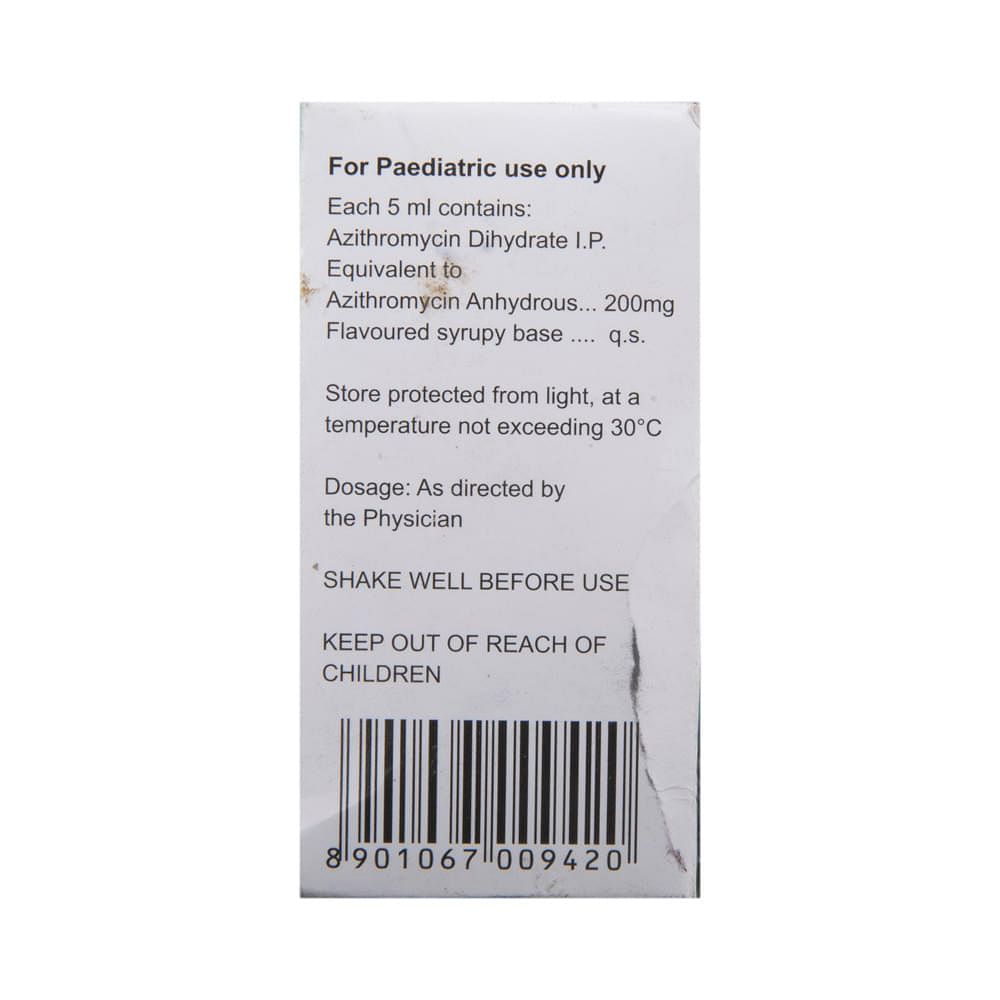
Aziwok 200 Liquid Mango
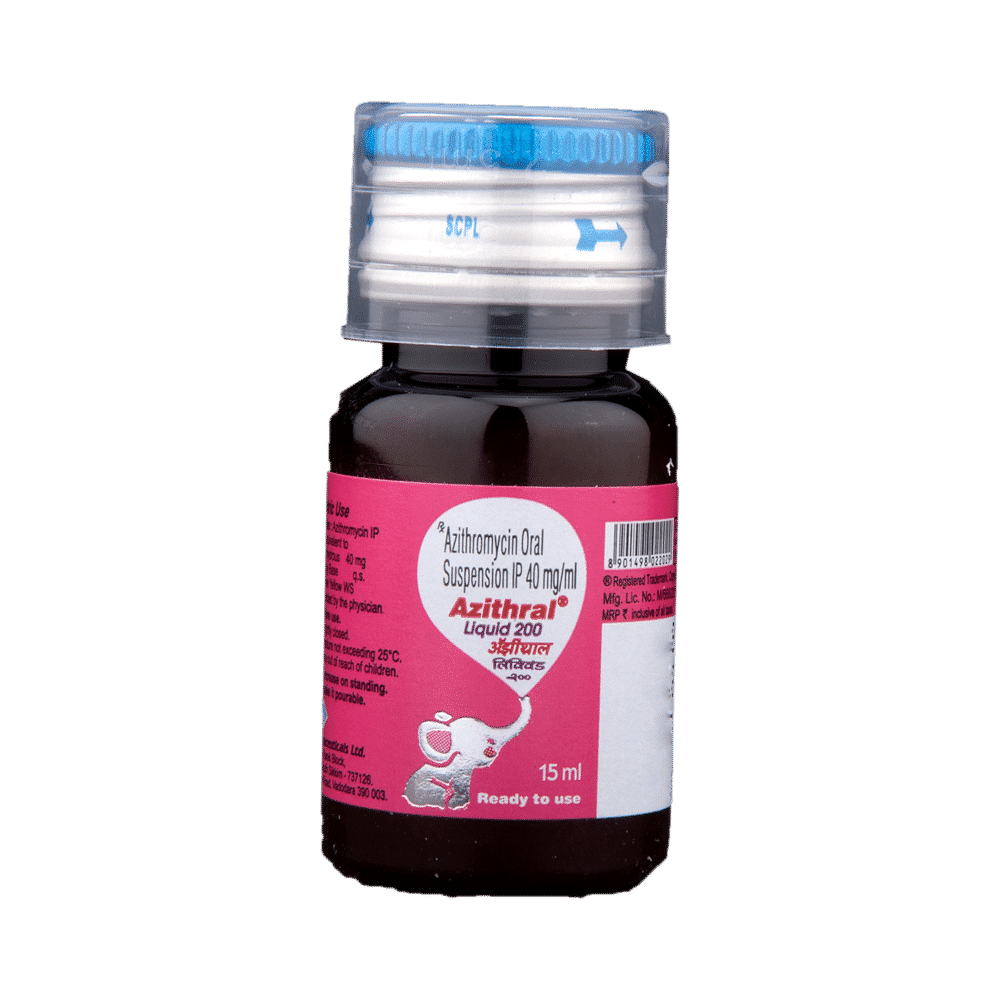
Azithral 200 Liquid
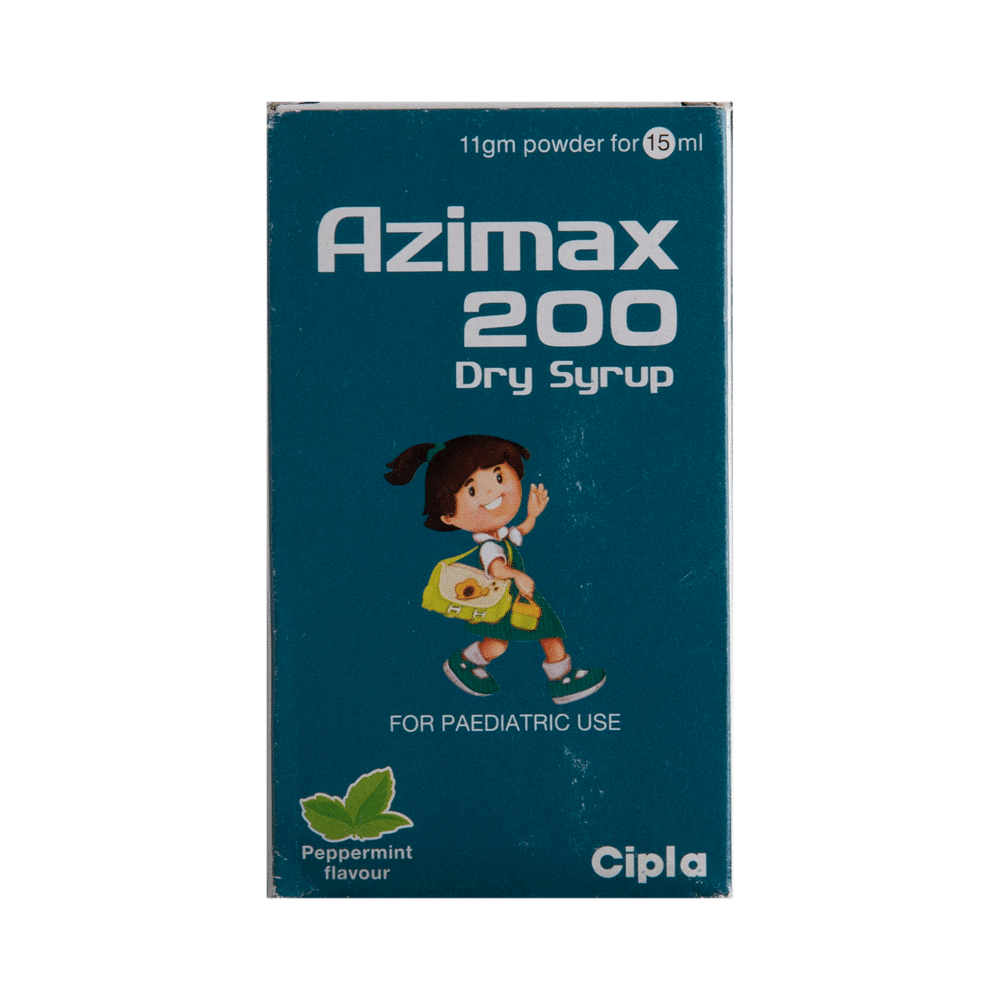
Azimax 200 Dry Syrup Peppermint
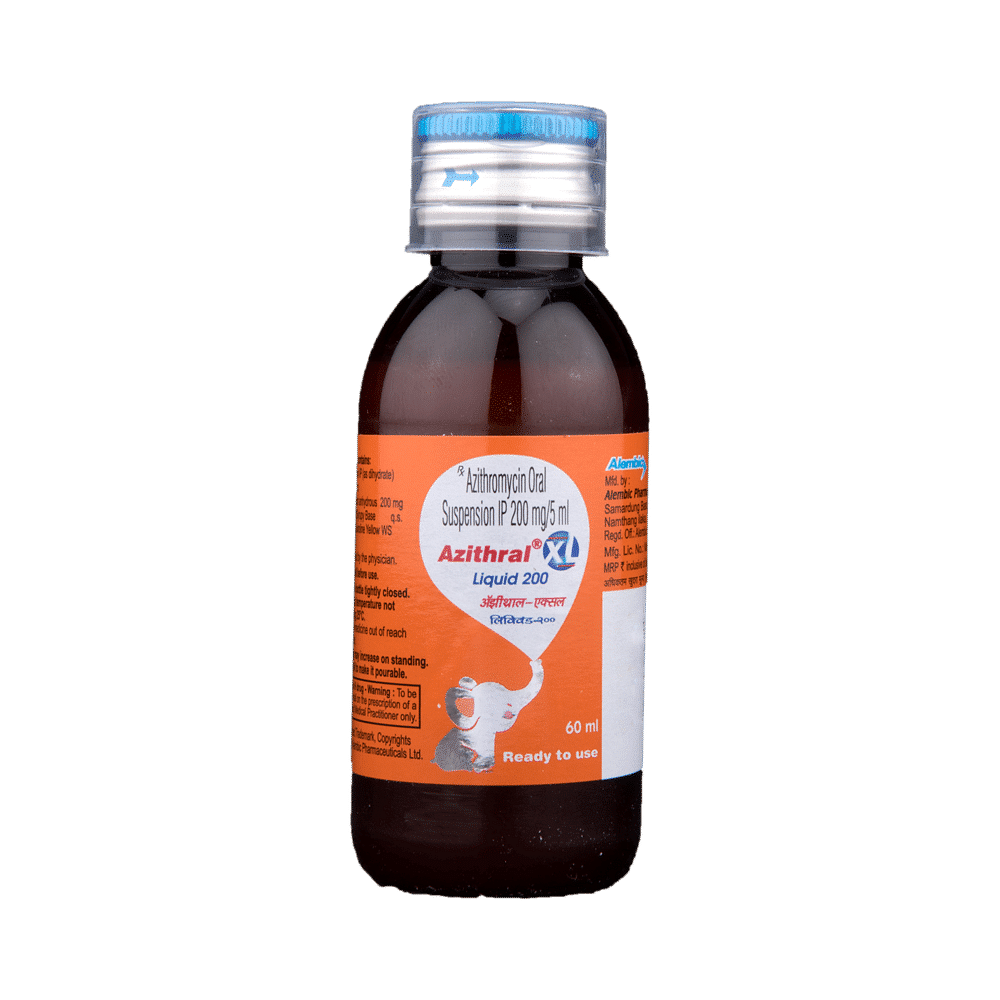
Azithral-XL 200 Liquid
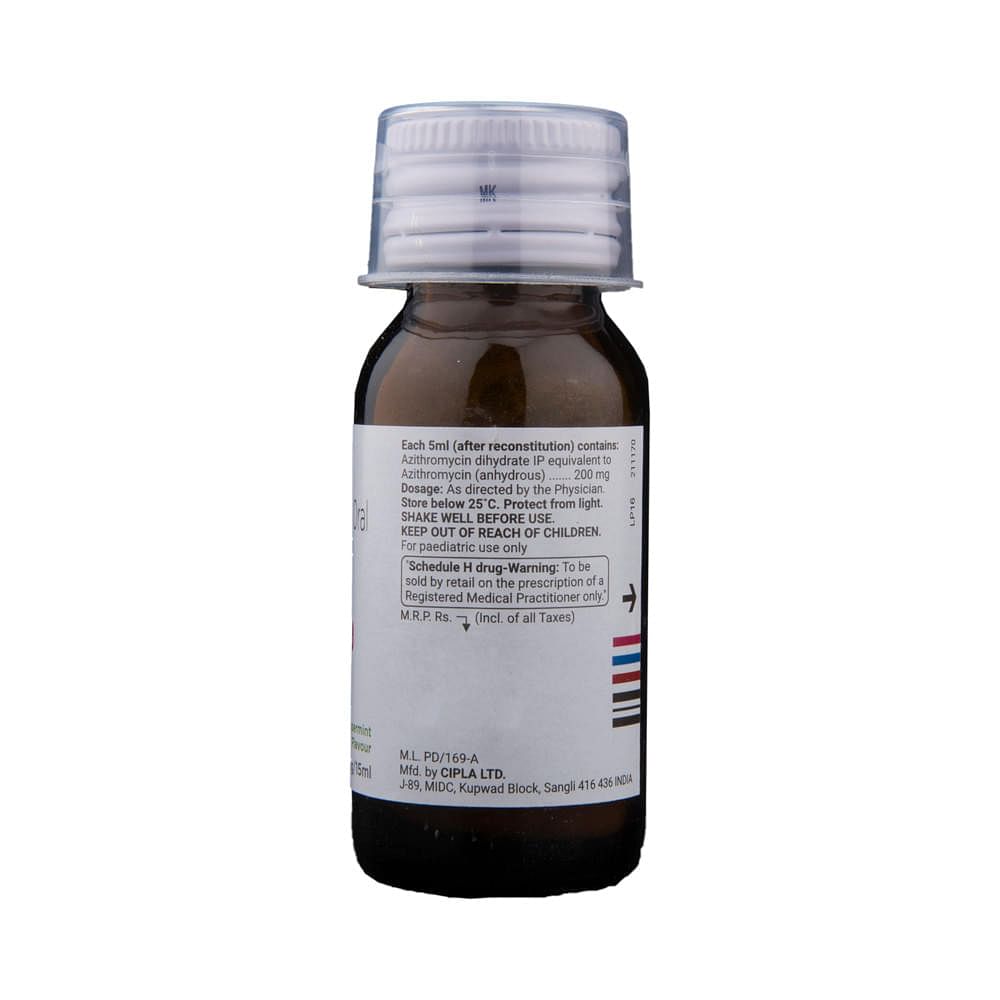
Azee 200 Dry Syrup Peppermint

Azee XL 200mg Liquid Peppermint & Orange
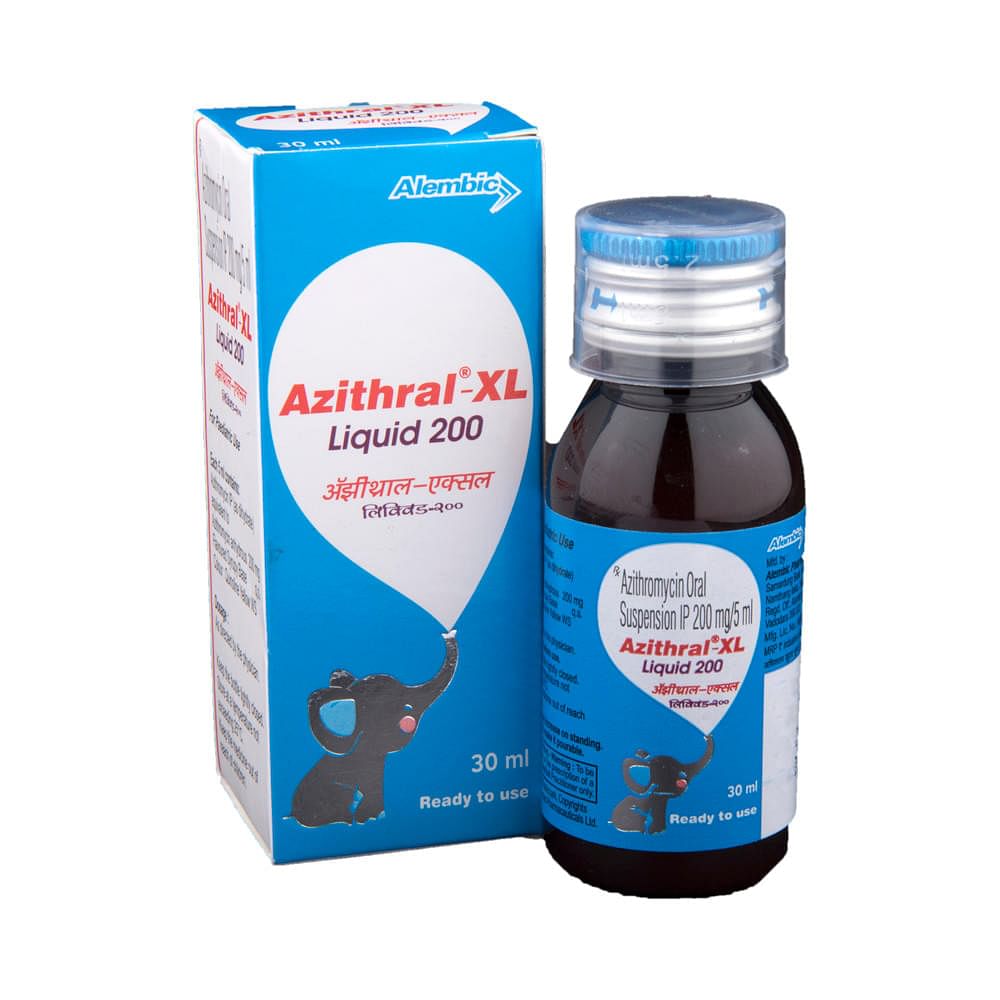
Azithral-XL 200 Liquid

Azifile-XL 200mg Oral Suspension

Azilas Oral Suspension
Frequently asked questions
What should I do if I accidentally give too much of Aziecro 200mg Oral Suspension to my child?
Aziecro 200mg Oral Suspension is unlikely to cause any harm if an extra dose is given by mistake. However, if you think you have given too much of Aziecro 200mg Oral Suspension to your child, immediately contact a doctor. Overdose may cause unwanted side effects and could worsen your child’s condition.
Are there any serious side effects associated with Aziecro 200mg Oral Suspension?
Serious side effects of this medication include persistent vomiting, kidney damage, allergy, diarrhea, and severe gastrointestinal infections. Always consult your child’s doctor for help if you observe these or other concerning symptoms.
Can I combine other medications with Aziecro 200mg Oral Suspension at the same time?
It is crucial to inform your child's doctor about all other medications being taken before starting Aziecro 200mg Oral Suspension. Additionally, it is important to consult with your child’s doctor before administering any medication to your child.
Can I get my child vaccinated while taking Aziecro 200mg Oral Suspension?
Antibiotics usually do not interfere with the ingredients in vaccines or cause a negative reaction in children who have just been vaccinated. However, it is best to postpone vaccination until your child has recovered from the underlying illness. If your child is feeling better, the vaccine can be administered as soon as appropriate.
What routine lab tests should my child undergo while taking long-term Aziecro 200mg Oral Suspension?
Regular kidney function and liver function tests may be recommended by your child's doctor to monitor the condition during long-term use of this medication.
Can Aziecro 200mg Oral Suspension impact my child’s digestion?
Children are often prone to digestive upset when taking medications. This is because antibiotics can disrupt the delicate balance of good and bad bacteria in their gut, potentially increasing the risk of infection and making it more difficult for the body to heal naturally.
Why is Aziecro 200mg Oral Suspension usually given for only three days?
The duration of treatment depends on the severity of the bacterial infection and the patient’s age. In most cases, a single dose of 500 mg is administered for 3 days. Alternatively, it can be administered as a single dose of 500mg on day one and then 250mg once from day two to day five. For specific infections like genital ulcer disease, a single dose of 1 gram is often prescribed. It's important to adhere to the prescribed regimen recommended by your doctor.
What should I avoid while taking Aziecro 200mg Oral Suspension?
It is generally advised to avoid antacids when administering this medication as they might reduce its effectiveness. It is also important to minimize sun exposure or tanning bed use, as this medication may increase the risk of sunburn.
Is Aziecro 200mg Oral Suspension considered a strong antibiotic?
Aziecro 200mg Oral Suspension is an effective antibiotic used to treat various bacterial infections. It has a longer half-life compared to other antibiotics, which means it stays in your child's body for a longer duration (once daily) and offers better efficacy.
Can I develop a yeast infection while taking Aziecro 200mg Oral Suspension?
While not a common side effect, some individuals might experience a fungal or yeast infection known as thrush after taking Aziecro 200mg Oral Suspension. If you experience any sore throats, vaginal itching, unusual discharge, white patches in the mouth, tongue, or other symptoms of an infection, it is crucial to inform your doctor.


